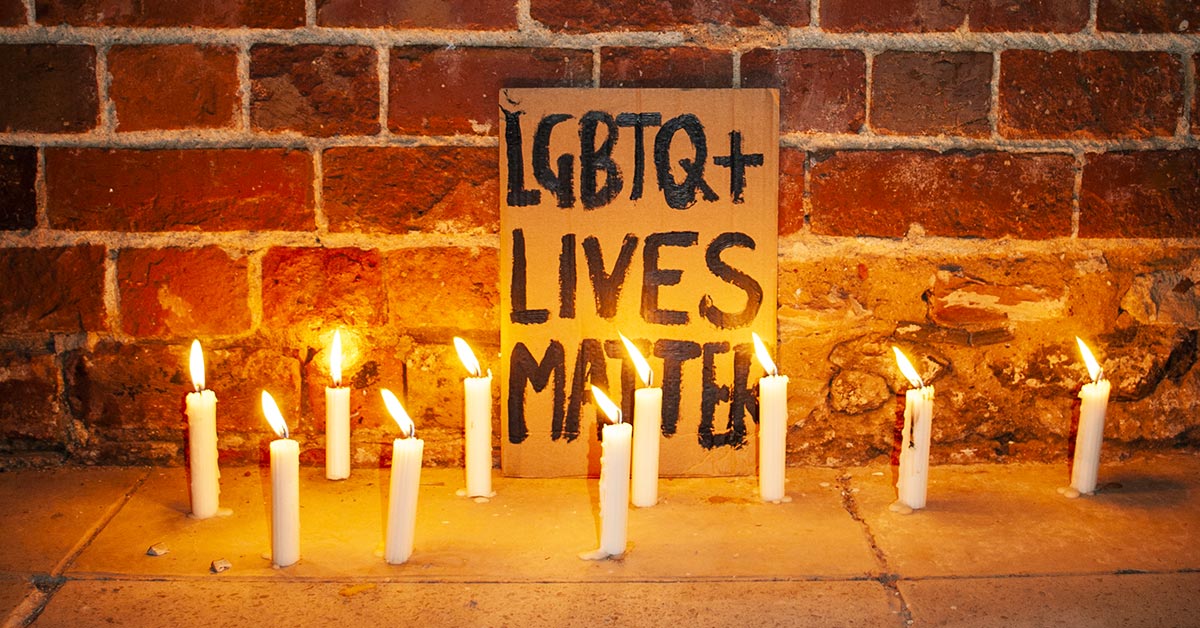Opinion: Queer bodies are still crime scenes

Last week, the South African Police Service (SAPS) released its first-quarter crime statistics stating that 6,228 murders were committed throughout the country during the period 1 April to 30 June 2023.
According to the Ipsos LGBT+ Pride 2021 Global Survey, it is estimated that 10% of our population openly identify as LGBTQIA+. This does not include those who do not feel comfortable being open in a cis-hetero-normative world that victimises them.
Statistically speaking, that means that a possible 622 South Africans who are openly LGBTQIA+ were murdered in just these three months of the year. (This could even be higher considering our increased vulnerability to violence and hate crimes.)
At the recent Eastern Cape LGBTQIA+ Dialogue, it was mentioned that 88% of LGBTQIA+ people who experience hate crimes do not report them and that the Eastern Cape Office of the SA Human Rights Commission received 667 complaints during 2022/23, the bulk of which related to sexual orientation.
We live in a society where queer people do not feel comfortable reporting crimes. We risk facing ridicule, harassment and victimisation when reporting crimes at local police stations; with investigations not being followed through, and evidence mysteriously disappearing, often resulting in cases being dismissed.
In what is regarded as a deeply homophobic province, the associated risks for those living in the Eastern Cape become deadly, especially for poor black lesbian or transgender people who are courageous enough to report crimes, as local authorities often reside in those very same homophobic patriarchal communities.
Working in government or serving in the police, does not automatically insulate one against patriarchy, homophobia, transphobia, sexism, racism or misogyny despite being bound by laws such as the Bill of Rights in our Constitution.
So why should queer South Africans even report crimes that have been committed against us if this is how are treated by the very same authorities whose purpose is to serve, protect and create a safe and secure environment for all of us? Because crimes are not automatically investigated by the police.
Even though it’s important that we report crimes for investigation and prosecution; the reality is that our trust in our authorities has been eroded over the years.
Yet the gruesome horrific nature of crimes committed against LGBTQIA+ people necessitates dire and urgent interventions.
Our provincial and local authorities need to develop a deeper understanding of how crime affects our queer communities. They need to take time to come to us, hear our stories and genuinely listen with open hearts, human kindness, love and compassion.
They need to be brave enough to use a black queer intersectional feminist lens to enable the crafting of appropriate and sustainable interventions; even if it causes discomfort when their core belief systems are questioned.
Ensuring our safety and security is not the sole responsibility of SAPS. It requires coordinated intergovernmental responses working in consultation with communities, traditional leaders, political parties, the faith-based sector, civil society, businesses and our queer community.
Despite being a vibrant and resilient community, we live our lives in perpetual fear of being discriminated against, harassed, attacked, murdered, raped, “correctively” raped, mutilated and even beheaded; not only when walking home from the shop but also at our places of work, worship and even in the safety of our homes.
As the queer community, it is time that we reclaim spaces to ensure our safety and security. It is crucial that authorities such as the provincial safety and security departments, the Department of Justice and Constitutional Development, the SAPS and other security clusters, including community policing forums; start actively working with queer communities, in every sphere of governance to ensure that our freedom to humanity is protected.
Sikhander Coopoo is a black, queer, Muslim intersectional feminist with backgrounds in gender, pedagogy and local governance; and a social justice and humxn rights activist at heart. He serves on the Gender and Sexuality Alliance of East London committee and writes in his own capacity.
Leave a Reply